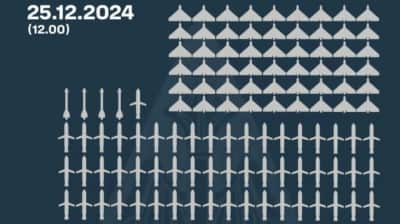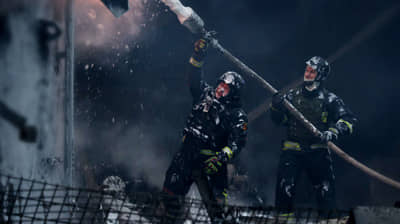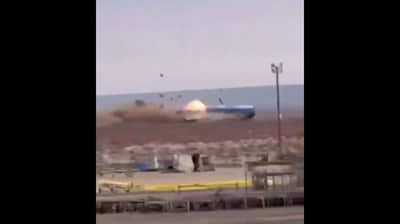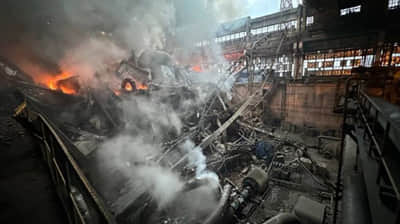Russians fail to prepare conscripts for efficient offensive
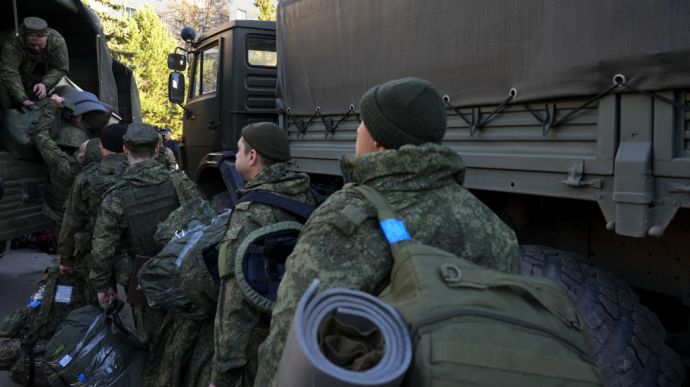
Experts from the Institute for the Study of War (ISW) have come to the conclusion that the Russian military has not managed to prepare conscripts for effective offensive operations in a short period of time.
Source: ISW
Details: Ukrainian military officials and Russian pro-war nationalist voices are downplaying Russia’s ability to launch a sweeping large-scale offensive in Donetsk Oblast in the current circumstances of the Russian Armed Forces.
Russian forces’ reported culmination and tactical failures around Vuhledar, Donetsk Oblast, have likely further weakened the Russian ultranationalist community’s belief that Russian forces are able to launch a decisive offensive operation.
The disparity between the limited but significant Russian advances in the Bakhmut area and the lack of meaningful advances elsewhere in Ukraine may support milblogger and Ukrainian observations that Russian forces are unable to secure rapid advances through traditional mechanised manoeuvre warfare.
The analysts have pointed out that the Russian military command is deploying its most elite units to the Bakhmut area in smaller formations using urban infiltration tactics.
These tactics seem to be resulting in significant tactical Russian advances in the Bakhmut area that could lead to operational gains if Ukrainian forces choose to withdraw from Bakhmut.
Russian offensive operations elsewhere in Donetsk Oblast and along the Svatove-Kreminna line have resulted in marginal advances without operational significance thus far.
ISW has noted that all the [Russian - ed.] formations so far observed were rendered combat-ineffective in earlier phases of the war and have very likely been reconstituted with mobilised personnel.
The analysts have assumed that the Russian military appears to have been unable to prepare its mobilised personnel to conduct effective mechanised offensive operations in the short period of time since their call-ups, as ISW forecasted.
The lack of adequate vehicles, ammunition, and other materiel is likely contributing to the ineffectiveness of Russian mechanised manoeuvre tactics thus far.
The Russian military is unlikely to be able to scale its approach from the Bakhmut area to the wider theatre because the tactics it is using in Bakhmut are more suited to dense urban environments and because Russian forces lack the number of elite formations needed to conduct a larger offensive in eastern Ukraine in the same fashion.
ISW has highlighted that Yevgeny Prigozhin, the Wagner Group financier, is trying to salvage his declining influence in Russia as the Kremlin continues to sideline him and his mercenaries.
Moreover, Prigozhin notably confirmed that Wagner has stopped recruitment in prisons because of the expiration of an agreement permitting such recruitment with an unspecified agency – likely the Russian Ministry of Defence.
The Kremlin is continuing to dim Prigozhin’s star by depriving him of the right to recruit in prisons and by targeting his influence in the information space.
Prigozhin’s criticism of the Kremlin’s military campaign resembles the rhetorical approach of the former Russian militant Igor Girkin.
"[...] it is possible that Prigozhin is also turning into a bitter zealot who is losing his ability to leverage his parallel military to obtain political influence.
If the current Russian offensive stalls rapidly, on the other hand, the star of the conventional Russian military may once again wane, possibly re-opening a path for Prigozhin to regain significance and opportunities," ISW summed up.
Key Takeaways as of 11 February:
- Ukrainian military officials and Russian pro-war nationalist voices are downplaying Russia’s ability to launch a sweeping large-scale offensive in Donetsk Oblast in the current circumstances of the Russian Armed Forces.
- Russian forces’ reported culmination and tactical failures around Vuhledar, Donetsk Oblast, have likely further weakened the Russian ultranationalist community’s belief that Russian forces are able to launch a decisive military effort.
- The disparity between the limited but significant Russian advances in the Bakhmut area and the lack of meaningful advances elsewhere in Ukraine may support milblogger and Ukrainian observations that Russian forces are unable to secure rapid advances through traditional mechanised manoeuvre warfare.
- Prigozhin is trying to salvage his declining influence in Russia as the Kremlin continues to sideline him and his mercenaries.
- Russian forces targeted southern Ukraine with air, missile, and aerial and maritime drone strikes overnight on 10-11 February.
- Russian forces continued offensive operations near Svatove and Kreminna.
- Russian forces continue to prioritise offensive operations in Donetsk Oblast.
- Russian occupation authorities are likely draining the Kakhovka Reservoir north of occupied Zaporizhzhia Oblast.
- Prigozhin confirmed that the Wagner Group stopped recruiting inside Russian prisons due to the expiration of an agreement between the Wagner Group and the Russian Ministry of Defence.
More on this story: Russia's February offensive. Hottest spots on the front now and possible fronts for Russia's new attack on Ukraine
Journalists fight on their own frontline. Support Ukrainska Pravda or become our patron!
